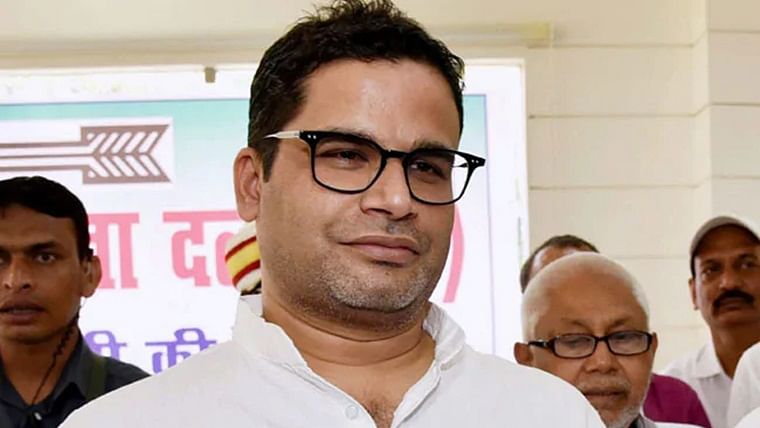After the recently concluded Bihar polls, Prashant Kishor and Tejashwi Yadav had delivered a stinging congratulatory message to Nitish Kumar, describing him as a “nominated” chief minister.
Once a close aide of Nitish Kumar, Prashant Kishor was made the JD(U) vice president by the party chief, but his independent and often adversarial views soured their relations and he was expelled from the party. Kishor, as the political strategist had worked closely with Nitish Kumar during the 2015 assembly elections before they fell out earlier this year. He tweeted his congratulatory message to the Bihar chief minister as soon as he started his fourth straight term.
Kumar took oath as chief minister on November 16 afternoon after the Bharatiya Janata Party decided to stick with Nitish Kumar despite the less than impressive performance of the Janata Dal United in the just-concluded assembly elections.
Nitish Kumar’s party, once considered the senior partner in the ruling Bihar alliance, won only 43 seats in the 243-member assembly, in contrast to the BJP’s 74 seats. The depleted strength of the JDU in the assembly is reflected in the composition of the council of ministers that was sworn-in with Kumar. The BJP has seven ministers in Nitish Kumar’s team as compared to five ministers from the JDU. One cabinet berth each has gone to the smaller allies, Hindustani Awam Morcha (HAM) and Vikas-sheel Insaan Party (VIP)
“Congratulations to Nitish Kumar for taking oath as the BJP-nominated chief minister,” tweeted Prashant Kishor, an effort to underline Nitish Kumar’s dependence on the BJP.
“With a tired and politically belittled leader as CM, Bihar should brace for (a) few more years of lackluster governance,” Prashant Kishor said in a tweet that appeared to echo the campaign pitch of the opposition.
Through the campaigning, Rashtriya Janata Dal’s Tejashwi Yadav who led the Grand Alliance of opposition parties, or Mahagathbandhan, had put Nitish Kumar’s 15 years as Bihar chief minister at the heart of its pitch. Tejashwi Yadav, in an attempt to dent the public perception about Kumar, would frequently claim that Nitish Kumar was tired as an administrator.
Prashant Kishor had strategized for Nitish Kumar ahead of the 2015 elections when arch-rivals JDU, RJD, and Congress had come together to form a grand alliance to stop the BJP from coming to power. Nitish Kumar walked out of this alliance in 2017 when he pole-vaulted into the BJP’s camp, accusing Tejashwi Yadav, his deputy from the RJD, of corruption. This switch had ejected Tejashwi Yadav from the treasury benches in the assembly to the opposition but the 31-year-old had promptly hit the ground running in his new role, campaigning against Nitish Kumar. Tejashwi Yadav’s RJD, which had emerged as the single largest party in the state elections, was projected to be within striking distance of power by most exit polls.
Yadav had tweeted his congratulations to Nitish Kumar, stressing that he had been nominated as chief minister. He also added that he hoped that Nitish Kumar would, instead of struggling to retain the chief minister’s chair, give priority to delivering on the NDA’s promise of 19 lakh jobs, education, health, and irrigation.
The author is a student member of Amity centre of Happiness





